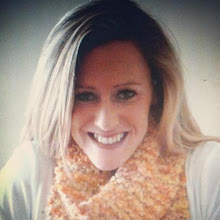what are your beliefs?
One of the things I am really enjoying about my schooling this year is the plethora of thought-provoking questions. Questions designed to make us explore our own inner selves, beyond the surface facades, deeper than the boundaries of familiarity and comfort. Questions that challenge what it is we know, what it is that we have always known. Questions that push us toward a greater, more expansive knowing.
We are born and then raised in an environment in which our core beliefs, values, and expectations develop within a relatively condensed system of family and community. Some people are raised in areas of greater diversity, embracing open-mindedness from an early age. Others of us spend our formative years in a fairly homogeneous group, limited and sheltered in our understanding of those people and places and beliefs that are different from our own. Regardless, we are all confronted with the boundaries of our beliefs at some point during our lives. And many of us find ourselves in a state of confusion at that point. What have we been taught to believe, to value, to expect from others and from the world? From our earliest teachings, which ones have we continued to claim as our own and which ones have we abandoned in favor of alternative views? And of the beliefs that each of us hold today, which ones have been challenged, confronted, questioned, or debated?
We are all guilty of making judgments. It is a natural human trait, albeit one that many of us would rather believe we do not possess. We see a disheveled person walking down the street and we tend to make a judgment about that person. We are apt to assume that the person is homeless, or lost, or mentally ill. We see a beautiful young woman wearing designer clothes, a scowl on her face as she avoids making eye contact with those around her. We are apt to assume that she values material things, is wealthy, and perhaps snobbish. Everyday we see people and we make automatic judgments about them based on what we see. It is a natural reaction and yet our assumptions may be quite far from the truth. The disheveled man walking down the street might have a home and a family and a good job; perhaps his car broke down and his appearance is the result of his attempts to fix his car before venturing to a nearby store for assistance. The beautiful woman in designer clothes may be a very caring and generous person, completely ambivalent about material possessions; perhaps she bought her clothes at a thrift shop and perhaps her scowl and lack of eye contact reflects timidity or a state of personal distress. The fact is that despite what we see, despite what we believe to be true, our beliefs and our assumptions are often more a reflection of our earliest teachings than a truly accurate perception of reality.
Working in the field of clinical psychology, it is imperative that we examine our own beliefs, our values, and our assumptions. If we do not explore these facets of our inner selves, we risk making faulty assumptions and making negative judgments of our patients. The attractive man seeking therapy after a recent diagnosis of HIV may not be gay or abuse drugs. The thirty-five year old woman who continues to live with her parents may not have any social problems or dependency issues. The adolescent dressed all in black with multiple tattoos and body piercings may be incredibly intelligent and well-behaved and have the kindest and most gentle spirit. If we sat with any of these people holding preconceived ideas based on their physical health or living situation or appearance, we would do a grave injustice. And yet we must be aware of how deeply ingrained our beliefs truly are. We must be willing to look at them directly and ask ourselves not only what it is that we believe and also why it is they we hold these beliefs? And then we must challenge them, challenging the very essence of ourselves in the process.
So, as I engage in my own process of self-exploration, I challenge each of you to think as well…What are your beliefs?


